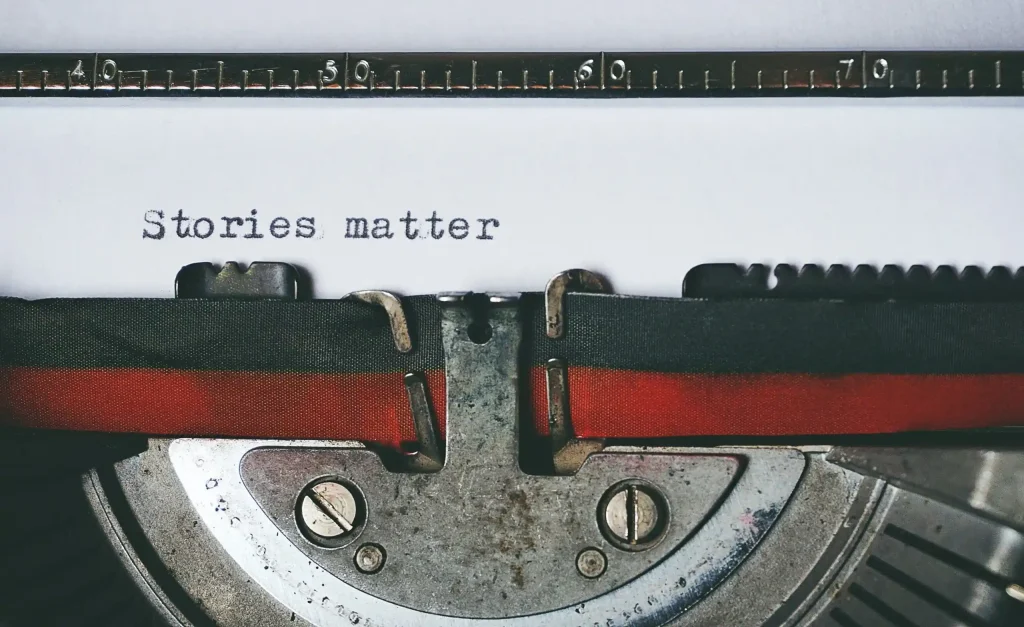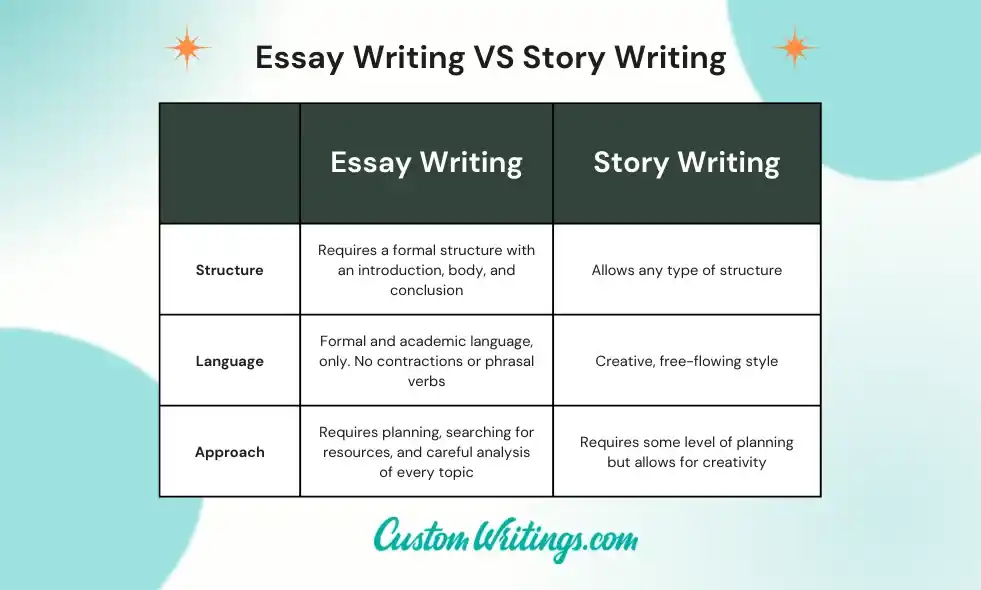Not everyone knows what distinguishes an essay from a story. Most of us don’t know these differences when we enter university. When a professor asks students to write an essay or a short story, not all people get what has to be done. Fear no more! We’ve decided to offer students comprehensive answers to the most frequently asked questions about essays. That’s why we’ve invited Brenda and John to help us out. Brenda is a writing supervisor at the Research Department, and John is a writing supervisor at the Advanced Writers Department. They’ve agreed to answer a few questions for us.
Q: How to write an essay?
Brenda: To me, essays and stories are very different and you can’t mix the two.
John: Well, you could make those kinds of mistakes as a newbie, I think. It isn’t easy for a sophomore to write a story or an essay.
Brenda: Yep, I’m sorry. Guess you’re right. So, an essay is typically an academic piece of work. But the main difference between the two is that the essay focuses on a topic, an academic issue, and a story is your typical tale about something interesting. Essays have a much more formal structure and language. It’s what people usually imagine when they list an introduction, body paragraphs, and a conclusion.
Essay writing language is more formal and it usually adheres to typical academic norms. That means no contractions, no phrasal verbs, and no personal pronouns aside from he, she, and they.
John: True. Essays writing has its own formula, and it’s usually required in university. When you’ve got an essay to write, you have your typical narrative, persuasive, argumentative, or compare and contrast essay, or anything else along the same lines. It’s all pretty easy to figure out. Initially, you may spend some time on researching information or learning what types of structures there are, but it’ll become very easy after a few tries.
Brenda: Yes. So, the first thing that you have to do when writing essays is to understand which one your professor wants you to write in this case. Let’s say they want you to complete a comparison between two companies. Then, it’s a compare and contrast essay, and it has its own structure.
Writing essays is hard especially when you have multiple responsibilities or tasks to attend to. If you ever thought “I wish someone could write my essay for me” you’re not alone. Professional services can help craft essays tailored to your needs, structure, argumentation and tone required for academic success. With experienced writers you can save time, reduce stress and make your essay stand out while meeting your professor’s expectations.
John: I usually begin by collecting all the information for the essay and putting it into a document. If I already have an opinion on the topic, I know what I’ll write my essay about. If not, I brainstorm for a while until I have a general idea. Most of the time, I decide how many topics I’ll cover.
Most academic writing requires no more than 200 words per paragraph, so that’s what I always keep in mind.
Our writers usually divide the word count by topics and know how many words will be used to cover each theme.
Brenda: And it’s crucial to mention that when writing an essay, a person should make sure not to overdo the introduction and conclusion sections. They usually can’t be more than 10% of the general paper size.
Q: How to write the story?
John: I think writing stories is more your thing, but I’ve written a few in my lifetime as well. I’d say that anyone who writes stories will know that they are much more informal than essays. There are few conventions in stories, and they are usually narrative-based.
Brenda: I really love writing stories even now, and I create a lot of them in my free time as well. As you’ve said, the gist of it is to write a story on a specific topic that will appeal to your reader. You have your, I should say, big idea, and you put it all together. But that doesn’t mean that story writing doesn’t have any form or structure. If you read any type of fiction, you will agree that most of the time, it has some kind of structure.
John: You can choose any type of words, contractions, and pronouns when you have a story to write because creative language is very different from academic writing.
College essays require deep research, critical thinking and polished writing, making it one of the toughest tasks for students. A reliable college essay writing service can help you tackle these challenges. From brainstorming unique ideas to delivering fully customized content, these services are designed to help you achieve your academic goals. Whether you want to improve your writing skills or meet a deadline, professional help ensures your college essays reflect the quality and thoughtfulness professors look for.
There are no rules. Or very few of them, I should say. The only things you’re restricted by are the genre and length of the story.
Brenda: There are some things to consider, such as not beginning your story in a boring way. And try to make a strong ending; it doesn’t have to be anything too impressive, but you’ve got to make the impression it leaves long-lasting.
John: Yes, a lot of stories begin with something fascinating to attract a reader. For example, I may want to write a mystery about a guy who wants to know who killed his family or stole his money. And I will begin by describing him standing in the middle of the critical scene, sharing a lot of his feelings, and maybe including a few dark or gory details, and only after that will I write from a little bit more of a distanced perspective.
Brenda: What helps me when creating a story is to have at least a beginning and end in mind. There’s a technique called freewriting, which is when you write everything that comes to mind just to explore it all. You can’t free write essay, but you can do it with stories. If you’ve got time, try to write whatever comes to mind and experiment a little. Ask yourself “Why did this story happen? Who’s the best character for this narrative?” If you want to write about a person overcoming their fear, you can take someone relatively average, like a teenage girl or boy, and talk about how they’ve been training the entire summer for a marathon. You can describe in a lot of detail how difficult it was and whether they actually ran the marathon.
John: Most of our students think about what short stories they should write, and I think they may be worried about how they’ll know that they’re creating something interesting.
My best suggestion is to make sure that you write stories you would love to read.
Then, put it aside for a few hours or days. After that, read it aloud to your friend or family member. Just remember that every story has its own audience.
Brenda: So, when writing essay or writing story, remember that you don’t have to be perfect. Just make sure that you reach that finish line.
John: Yep, you’ve pretty much wrapped it all up. Thanks for your time, Brenda!
Brenda: See you, John.
Our experts from professional essay writing service usually divide the word count by topics and know how many words will be used to cover each theme.
Recommended reads






